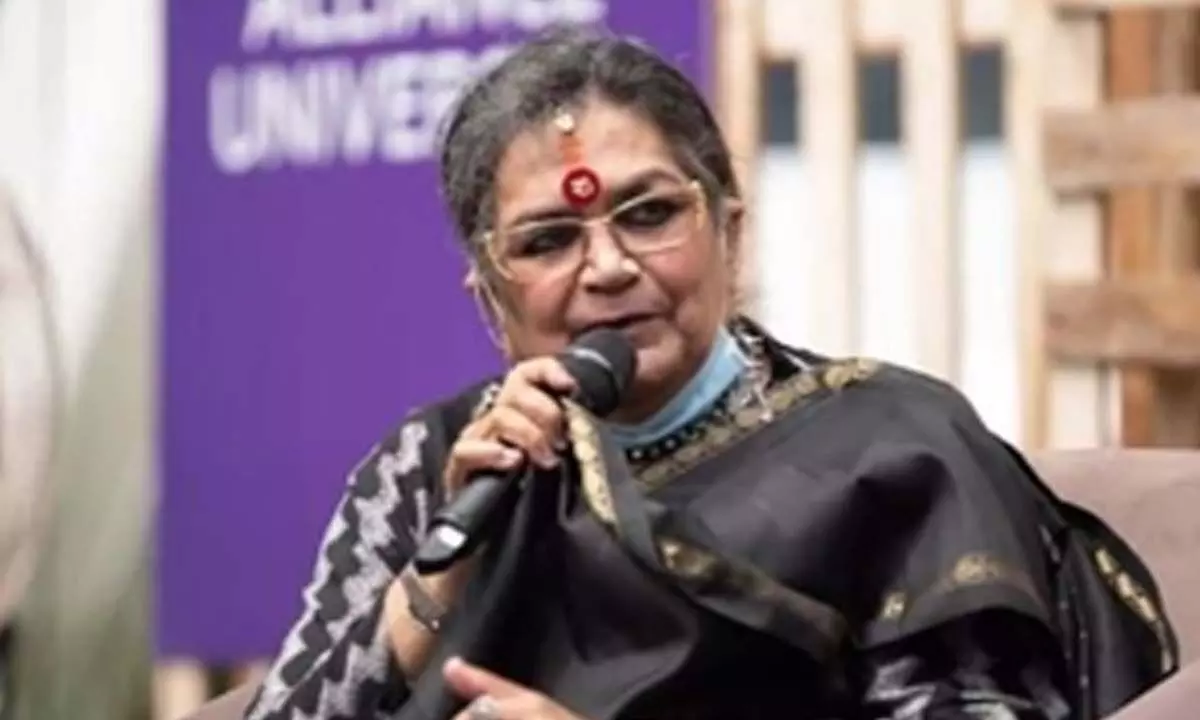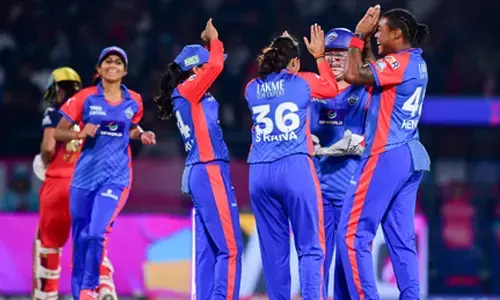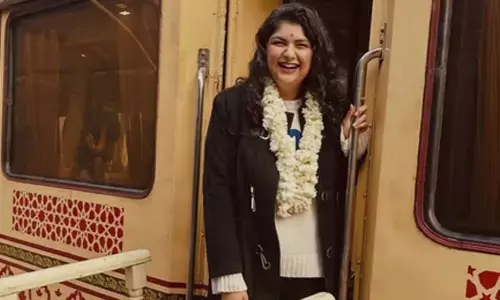'Hare Rama Hare Krishna' to 'Doosri Darling': Usha Uthup's lyrical journey
Share :

Born and raised in Byculla, Bombay, daughter of a cop who used to be responsible for Mahatma Gandhi's security bandobast, and adopted for life by Calcutta, Usha Uthup is the voice and spirit of the Swinging Sixties that the eastern metropolis was synonymous with till the Bangladesh War and the red shadow of Naxalism changed it forever.
New Delhi: Born and raised in Byculla, Bombay, daughter of a cop who used to be responsible for Mahatma Gandhi's security bandobast, and adopted for life by Calcutta, Usha Uthup is the voice and spirit of the Swinging Sixties that the eastern metropolis was synonymous with till the Bangladesh War and the red shadow of Naxalism changed it forever.
Now, honoured with the Padma Bhushan, along with her 'Disco Dancer' star Mithun Chakraborty, 12 years after she was conferred the Padma Shri, Usha Uthup (formerly Iyer), the Queen of Indian Pop famous for her husky voice, boundless energy, distinctive red bindi and tastefully selected Kanjivarams, sang herself into popular imagination with two anthemic numbers of Hindi cinema's disco era -- Hari Om Hari ('Armaan', 1981) and Aha Nache Nache ('Disco Dancer', 1982).
Not formally trained in music, Uthup got her first singing break in a nightclub in Madras before she moved to Trincas, the Mecca of Park Street's club life in Kolkata, where the legendary Pam Crain was the reigning diva.
She was discovered in Chennai for Bollywood by Dev Anand and Shashi Kapoor, and she sang the English parts ('I love you, can't you see my blue eyes, I really do, oh please give me another chance') of the R.D. Burman-composed 'Hare Rama Hare Krishna' in the 1971 film of the same name that launched Zeenat Aman.
Uthup was originally meant to sing the iconic number 'Dum Maro Dum', but Asha Bhosle got to do it finally, leaving the young singer from Calcutta to be content with the bit she crooned for 'Hare Rama Hare Krishna'.
IANS celebrates Uthup's evergreen Bollywood numbers, which are still on everyone's playlist.
'One Two Cha Cha': From the 1978 film 'Shalimar', the music was given by R.D. Burman and Anand Bakshi wrote the lyrics (as in 'Hare Rama Hare Krishna'. The Indo-Hollywood film was directed by the Indian American, Krishna Shah. The movie starred Dharmendra, Zeenat Aman, Sir Rex Harrison, Shammi Kapoor, John Saxon and Sylvia Miles.
'Hari Om Hari': The track, an anthem of the disco generation, featured in the 1980 film 'Pyaara Dushman' starring Vidya Sinha, Yogeeta Bali, Sarika, Amjad Khan, Vinod Mehra, Rakesh Roshan in the lead roles. The music is by Bappi Lahiri.
'Doston Se Pyar Kiya' and 'Shaan Se': The 1980 film 'Shaan', an action thriller film directed by Ramesh Sippy. The music was composed by R.D. Burman. The film stars Sunil Dutt, Shashi Kapoor, Amitabh Bachchan, Shatrughan Sinha, Raakhee Gulzar, Parveen Babi, Bindiya Goswami, Johnny Walker and Kulbhushan Kharbanda.
'Ramba Ho': The music for this 1981 track was by the late composer and singer Bappi Lahiri and was sung by Usha Uthup. Featured in 'Armaan', which was loosely based on the Humphrey Bogart-headlined 'Casablanca' (1942), the film starred Raj Babbar, Shakti Kapoor, Shammi Kapoor, Ranjeeta Kaur, Dev Kumar and Deepak Parashar.
'Koi Yahan Aha Nache Nache': The song, composed by Bappi Lahiri for the 1982 film 'Disco Dancer', was picturised on Mithun Chakraborty and Kalpana Iyer, the 'vamp' of her age. The film, which became a sleeper hit because of its disco numbers, narrated the rags-to-riches story scripted by Rahi Masoom Raza of a young street performer from the slums of Bombay.
'Doosri Darling': Released in 2011, the track was featured in the Priyanka Chopra-starrer '7 Khoon Maaf', where Usha Uthup appeared as well in a supporting role. The song was sung by Uthup and Rekha Bhardwaj to the music of Vishal Bhardwaj.













